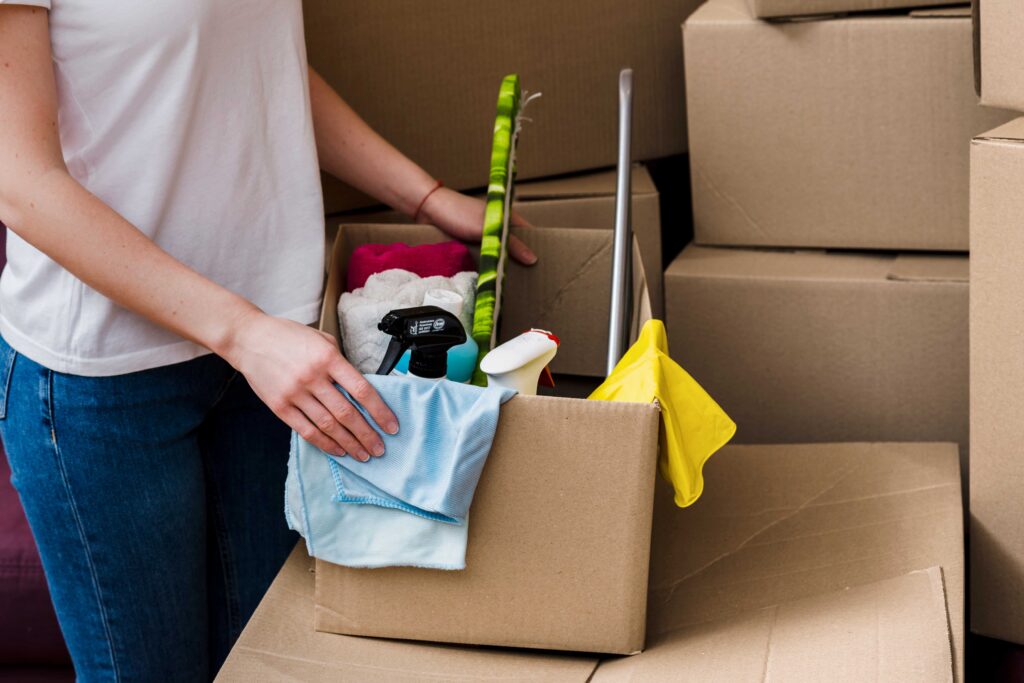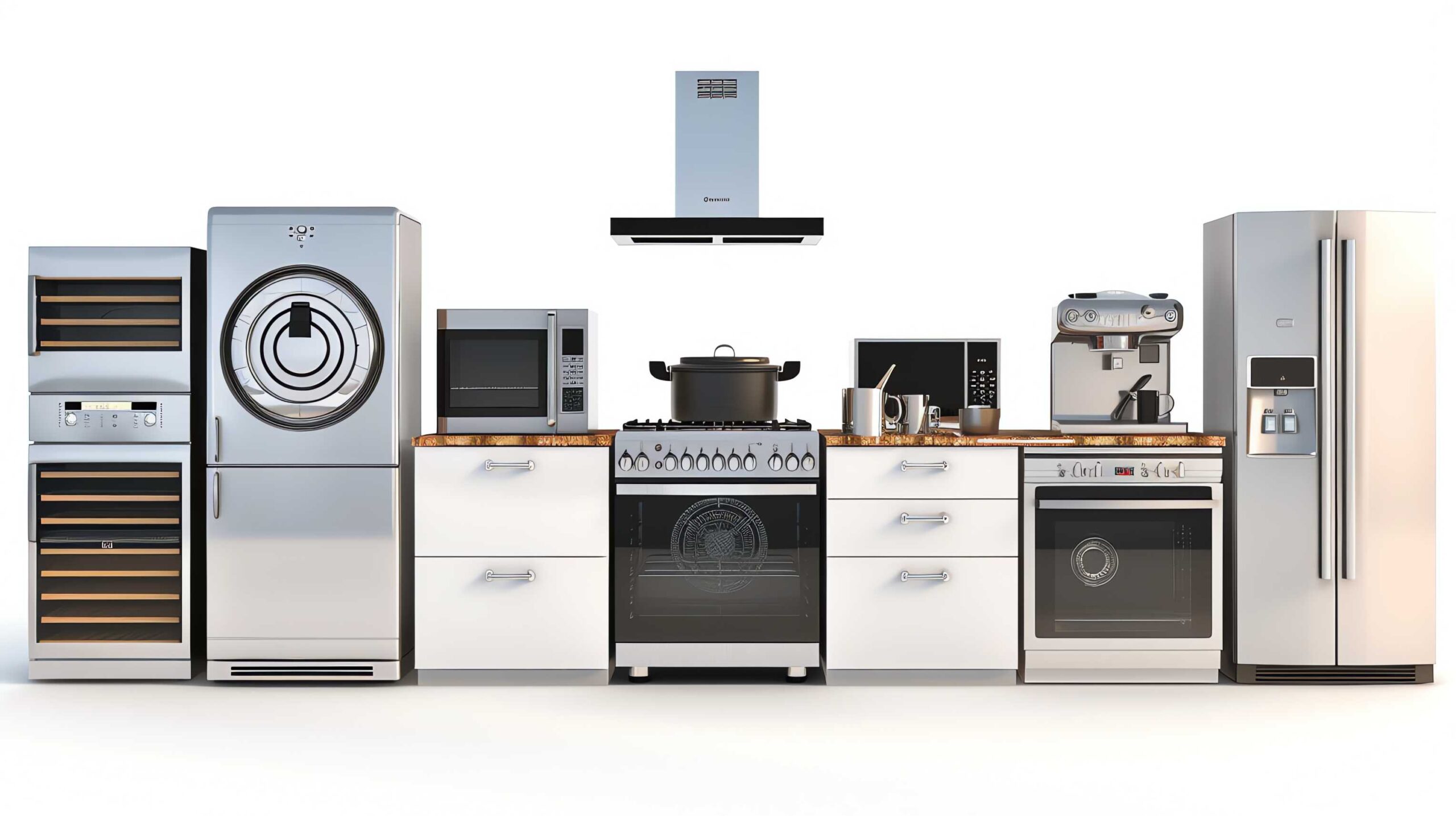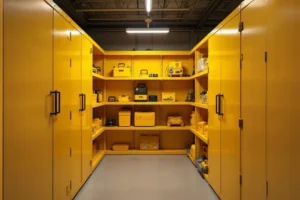Storing kitchen appliances can be a daunting task. However, proper storage is crucial for maintaining the condition and longevity of your appliances. Whether you’re downsizing, moving, or just need some extra space, understanding how to store your kitchen appliances effectively is essential. A storage unit can be a practical solution to free up valuable space in your home while ensuring that your appliances remain in excellent condition.
Preparing Kitchen Appliances for Storage
1. Cleaning Appliances
Before placing any appliance in storage, thorough cleaning is vital. Residue and dirt can lead to mould growth or damage over time. For refrigerators, empty all food items and clean the interior with a mild detergent. Use a solution of water and vinegar for a natural disinfectant.
For microwaves, wipe down the interior with a damp cloth and remove any leftover food particles. Blenders should be disassembled and washed thoroughly. Take care to clean each part, ensuring no moisture remains. This step is essential to prevent unpleasant odours and potential damage during storage.
2. Disconnecting and Defrosting
Before storage, safely disconnect your appliances. Unplug refrigerators and freezers from the power source. Remove any batteries from smaller appliances, like handheld mixers or blenders. This will prevent leaks and corrosion.
Defrosting is particularly important for refrigerators and freezers. If left unchecked, residual moisture can freeze and lead to damage or mould. Allow the appliance to defrost completely before storing it. This step will help maintain a dry environment in the storage unit.
Packing Appliances for Storage

1. Using Protective Materials
Once cleaned and prepared, packing appliances properly is crucial. Use protective materials to cushion them during transport and storage. Bubble wrap is ideal for wrapping delicate parts. Use blankets or towels to provide extra cushioning for larger appliances.
Cardboard boxes are also a good option. However, ensure that you choose sturdy boxes that can support the weight of the appliances. Securing fragile parts, like glass components or buttons, will prevent breakage and damage during storage.
Disassembling When Necessary
Some appliances, such as mixers and coffee machines, can be disassembled. This not only saves space but also makes packing easier. Keep screws and small parts organised in labelled bags. This will make reassembly straightforward when you need the appliance again. Taking these steps will ensure that everything remains intact and easy to access.
Organising Your Storage Unit
1. Choosing the Right Location
When placing appliances in your storage unit, choose the right location. Place frequently used items near the front for easy access. Heavier items should be stored at the bottom to prevent them from toppling over. This organisation helps you retrieve items without digging through everything.
2. Creating an Inventory
Keeping an inventory of stored appliances is a smart idea. Make a list of what you’ve stored, noting the condition of each item. Labelling boxes or specific areas of the storage unit will make it easier to find appliances later. This systematic approach saves time and effort when you need to access your items.
Climate Control Considerations
1. Importance of Temperature and Humidity Control
Temperature and humidity levels can significantly affect kitchen appliances. Extreme temperatures may cause parts to warp or break. High humidity can lead to rust and mould growth.
For sensitive appliances, consider using climate-controlled storage units. These units maintain consistent temperature and humidity levels, providing an optimal environment for your appliances. This investment will ensure your items remain in top condition.
Accessing Your Appliances
1. Planning for Future Access
When storing appliances, plan for future access. Pack items in a way that allows easy retrieval. Group appliances by category and keep the most frequently used ones at the front.
It’s also wise to conduct regular checks on stored items. This helps ensure everything remains in good condition. Regular inspections allow you to catch any potential issues before they worsen.
Conclusion
In summary, proper storage of kitchen appliances is essential for maintaining their condition. Start by cleaning and preparing appliances before packing them securely. Organising your storage unit and keeping an inventory will simplify future access. Climate control is also crucial for preserving sensitive items. By following these guidelines, you can ensure your kitchen appliances remain in excellent shape while stored away.
Read More: Tips for Storing Seasonal Decorations
FAQs
Can I store appliances without cleaning them?
No, it’s crucial to clean appliances before storage to prevent damage from food residue and moisture.
How long can appliances be stored without damage?
Most appliances can be stored for extended periods if they are cleaned and packed correctly. However, regular checks are advisable.
Are there any appliances that shouldn’t be stored in a storage unit?
Certain items, such as those containing flammable materials or perishable items, should not be stored. Always check storage unit regulations for restrictions.




